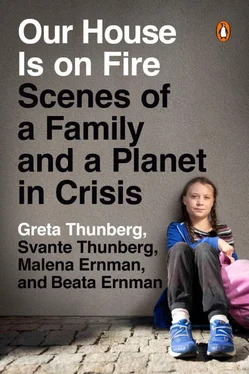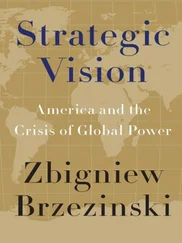Greta Thunberg - Our House Is on Fire - Scenes of a Family and a Planet in Crisis
Здесь есть возможность читать онлайн «Greta Thunberg - Our House Is on Fire - Scenes of a Family and a Planet in Crisis» весь текст электронной книги совершенно бесплатно (целиком полную версию без сокращений). В некоторых случаях можно слушать аудио, скачать через торрент в формате fb2 и присутствует краткое содержание. Город: New York, Год выпуска: 2020, ISBN: 2020, Издательство: Penguin Books, Жанр: Биографии и Мемуары, Публицистика, на английском языке. Описание произведения, (предисловие) а так же отзывы посетителей доступны на портале библиотеки ЛибКат.
- Название:Our House Is on Fire: Scenes of a Family and a Planet in Crisis
- Автор:
- Издательство:Penguin Books
- Жанр:
- Год:2020
- Город:New York
- ISBN:978-0-14313-357-5
- Рейтинг книги:4 / 5. Голосов: 1
-
Избранное:Добавить в избранное
- Отзывы:
-
Ваша оценка:
- 80
- 1
- 2
- 3
- 4
- 5
Our House Is on Fire: Scenes of a Family and a Planet in Crisis: краткое содержание, описание и аннотация
Предлагаем к чтению аннотацию, описание, краткое содержание или предисловие (зависит от того, что написал сам автор книги «Our House Is on Fire: Scenes of a Family and a Planet in Crisis»). Если вы не нашли необходимую информацию о книге — напишите в комментариях, мы постараемся отыскать её.
Our House Is on Fire: Scenes of a Family and a Planet in Crisis — читать онлайн бесплатно полную книгу (весь текст) целиком
Ниже представлен текст книги, разбитый по страницам. Система сохранения места последней прочитанной страницы, позволяет с удобством читать онлайн бесплатно книгу «Our House Is on Fire: Scenes of a Family and a Planet in Crisis», без необходимости каждый раз заново искать на чём Вы остановились. Поставьте закладку, и сможете в любой момент перейти на страницу, на которой закончили чтение.
Интервал:
Закладка:
When Kevin lectured at the Royal Swedish Academy of Sciences in September 2017, with Crown Princess Victoria present, he started by issuing a ‘health warning’ to the audience, because what he does research on is not easy for the majority to absorb. A couple of years ago we probably would have needed something similar prior to this conversation with Kevin and Isak, but now it has all become part of our everyday existence.
‘For almost thirty years we have known all we need to know about climate change, but during all that time we have chosen not to do anything about the problems. Not even progressive countries like Sweden have done anything; if you include aviation, shipping and goods that are produced abroad, Sweden’s emissions remain at the same level as in 1992 when the UN’s first climate conference was held in Rio. Instead, we’ve let economists control our decisions. We fool everyone into thinking that we’re doing what we need to, but the fact is that no industrialized country in the world is doing anything that comes even close to what is required. There is a perfect Swedish word for what we are doing: swindlee .’
‘ Svindleri ,’ Isak corrects him. Swindle.
‘That’s right! Svindleri! ’ Kevin laughs and continues.
‘If we had acted then, like we said we would, the climate issue would not have been such a big problem. We could have managed everything with new technology and changed economic guidelines. But because we have now spent thirty years talking, lying and delaying, the system has to change completely, because today’s economic model is not going to be able to solve the climate crisis. Much less the sustainability crisis. It has to be replaced.’ Kevin shifts on the couch, which, suitably enough, appears to come from a flea market, like the rest of the worn, mismatched furniture.
‘But there’s a lot that is hopeful right now. Many indications that a system change is possible, and even if the results of much of the change that has taken place aren’t always great, the signs are there. The financial crisis, the Arab Spring, Corbyn, Trump, Bernie Sanders, the price of renewable energy, the debate on the effect of diesel and petrol on our health.’
‘And the MeToo movement,’ I interject.
‘Exactly,’ says Kevin. ‘We are probably facing major changes in society. That’s extremely hopeful.’
I lean over to Greta and ask if it’s okay if I tell them about what she is planning to do. She nods.
‘Greta is thinking about going on school strike in front of Parliament when school starts in August. She intends to sit there every day until the parliamentary election.’
Kevin and Isak’s faces light up and they stop talking.
‘So how long will you be sitting there?’ Kevin asks.
‘Three weeks,’ Greta says, almost inaudibly.
‘Three weeks, you say?’ Isak checks.
Greta’s face shows agreement.
‘That ought to get a few politicians to listen,’ Kevin says approvingly.
‘She got the idea when she was part of a telephone meeting about starting a Swedish version of Zero Hour. It’s a new movement in the USA that will get children to take politicians to task for not doing anything,’ Svante says. ‘But Greta doesn’t think protest is enough any more. She thinks some form of civil disobedience is required. Something agreeably illegal. Is that right, Greta?’
Svante checks, as usual when he is speaking in Greta’s place, due to her mutism. She nods.
‘But in this case she’ll have to do everything by herself. We can’t stand behind and help her,’ Svante says.
‘But Greta already knows the issue better than either Svante or I do,’ I interject. ‘It’s only because of our daughters that we even opened our eyes to the climate crisis. Without them we never would have got involved.’
‘Well done, Greta,’ Kevin and Isak say in unison. Greta’s eyes glisten and I sense that something is starting right there and then, in the feeling of being seen and heard in a context that has real significance.
There is a pause. These thoughts take over the room – that the almost invisible little girl on the chair by the window is planning to put herself at the very centre of the spotlight, and, all alone, in her own thoughts and words, question the foundation of the prevailing world order…
To find a path that can lead us out of the sustainability crisis is to do the impossible, and I love everyone who is crazy enough to try. On the other hand, when it concerns my child I am far more circumspect, and if it were up to me I’d probably say no. But it’s a long time until August. And it’s a long way from thought to action when you haven’t even finished eighth grade.
A few years ago Kevin attracted some attention when he refused to take part in a climate conference in London because all the participants were forced to pay a fee to offset their emissions. Kevin argues that from a total emissions perspective offsetting will almost certainly do more harm than good because the signal it sends is that there is an easy way to recapture the CO 2we release, and thereby undo the emissions.
‘So if the idea of offsetting emissions is wrong,’ Svante asks, ‘is there no other way to compensate for what we’re doing other than refraining from actually doing it?’
‘No. First, if you fly then you’re sending a clear market message to the airlines that they should keep doing what they’re doing and buy more planes and expand airports. Which is exactly what’s happening all over the world right now. Airlines are ordering more and more new aircraft and airports are expanding. By choosing to fly, you’re not putting pressure on politicians to invest in trains instead, which they ought to do. And second, you are sending a lot of CO 2into the atmosphere that’s going to affect the climate for thousands of years. It’s not going to disappear just because you buy solar panels for poor villages in India. That isn’t to say that we shouldn’t buy solar panels for poor villages in India, or plant trees where it does ecological good to plant trees – which is not just anywhere, because soil, reforestation and emissions are extremely complicated matters about which we still know too little. But we don’t need to fly or eat hamburgers to justify spending money on worthwhile projects. Carbon offsetting is like paying poor people to diet for us.’
SCENE 84.
When the Microphone Is Off
After several hours at the university, we walk over to the Botanical Gardens and have lunch in a café next to the Tropical Conservatory. Roxy finally gets a big bowl of water, which she gulps down in the heat before slinking under the table and settling down. We order a vegan lunch. Greta saves her glass jar with bean pasta for the trip home.
‘I often eat the same thing every day too,’ Kevin says to Greta. ‘I mostly live on broccoli and bread. Everyone thinks I’m joking when I say that, but it’s simple and practical. And I do like broccoli and bread a lot.’
Greta nods subtly in response and I assume that he’s saying this half-jokingly and more out of empathy than eccentricity.
We talk about our summers in Lewes when Greta was little, and of course I talk about my childhood memories of the convent in Whitby. We step into the role of English-speaking Swedes and as usual become slightly different people than we are in Swedish.
‘You must come to Dalhalla,’ we say, and Kevin wonders how far it is from Uppsala. ‘Two hundred, maybe two hundred and fifty kilometres?’
‘You can cycle,’ Isak says, in a way that makes it clear that Kevin is an extremely good cyclist.
Kevin is like any pleasant, sociable Englishman. Funny, open and sympathetic.
Читать дальшеИнтервал:
Закладка:
Похожие книги на «Our House Is on Fire: Scenes of a Family and a Planet in Crisis»
Представляем Вашему вниманию похожие книги на «Our House Is on Fire: Scenes of a Family and a Planet in Crisis» списком для выбора. Мы отобрали схожую по названию и смыслу литературу в надежде предоставить читателям больше вариантов отыскать новые, интересные, ещё непрочитанные произведения.
Обсуждение, отзывы о книге «Our House Is on Fire: Scenes of a Family and a Planet in Crisis» и просто собственные мнения читателей. Оставьте ваши комментарии, напишите, что Вы думаете о произведении, его смысле или главных героях. Укажите что конкретно понравилось, а что нет, и почему Вы так считаете.






![Корнелл Вулрич - Murder at Mother’s Knee [= Something That Happened in Our House]](/books/398097/kornell-vulrich-murder-at-mother-s-knee-somethin-thumb.webp)





